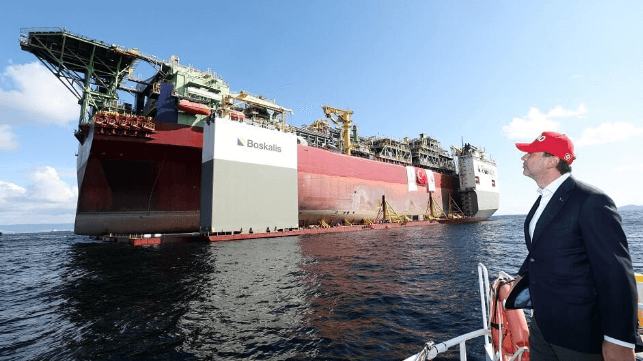Turkey Will Double its Offshore Natural Gas Production With New FPSO

On Thursday, Turkey's energy ministry took delivery of a newly-refurbished FPSO for its Sakarya gas field, a 700 billion cubic meter deposit in the Black Sea that promises to reduce Turkey's dependence on imported Russian natural gas.
Turkey produced minimal quantities of its own natural gas until just last year, when Sakarya's first phase of development came online. Phase one is designed to produce 10 million cubic meters per day to fuel Turkey's power generating sector, and the second FPSO - the BW Opportunity, ex name Cidade de San Mateus - will double that by 2026. In coming years, as more wells come online, Turkey hopes to increase output to 40 million cubic meters daily.
A Boskalis semisubmersible heavy lift ship delivered the FPSO to a port in Canakkale for additional preparations. The floating production platform should be deployed in 2025, and it is designed for continuous operation through 2045 (not counting any life extension measures).
Turkey's State Petroleum Corporation acquired the FPSO secondhand not just for economy, but also for speed. The time to build a new one would be about five years, but the BW Opportunity was purchased, refurbished in Singapore and delivered to Turkey in the span of one year.

that matters most
Get the latest maritime news delivered to your inbox daily.
Turkey consumes an average of about 135 million cubic meters of natural gas per day, and twice that in the coldest months of winter. Taken together the production from Sakarya phase one and two will supply about 15 percent of average national demand.
Until 2023, Turkey imported 98 percent of all of its natural gas. Over the last three years, as the global price of LNG increased due to European demand, Turkey shifted its import strategy to pipeline gas, and it now gets about 60 percent of its imported gas supply from Russia.
